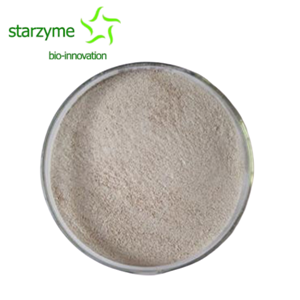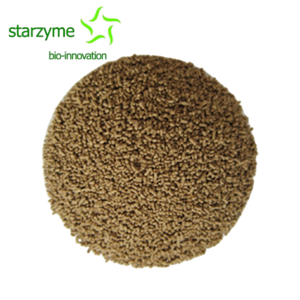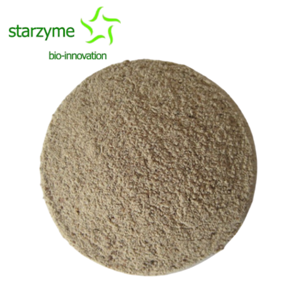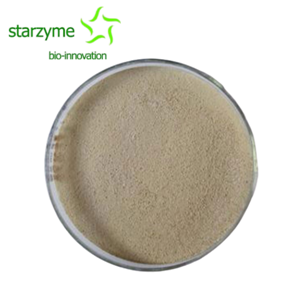Bacillus subtilis As a Feed Additive for Poultry PART 1
FOREWORD
Bacterial strains that are consumed by humans or by animals to promote health are called probiotics. In poultry, Bacillus strains are widely used as feed additives for this purpose. Although different modes of action have been proposed, studies showing effects on what metabolites the bacteria produce in a test tube, and whether these can also be found in the intestine of animals that were given these strains as feed additives, are lacking. In the current study, we show that administration of a Bacillus strain to broiler chickens changes the microbial composition in the gut by reducing opportunistic pathogenic bacterial families and promoting beneficial bacterial families. We show that two molecules, hypoxanthine and nicotinic acid, are produced by the Bacillus strain and are elevated in the intestinal tract of these animals. We hypothesize that nicotinic acid can be used by beneficial microbes and is essential for their intestinal colonization, and that both molecules can have a positive effect on the intestinal wall. These data can be used to evaluate and develop novel feed additives to promote health of chickens, and reduce the need for antibiotic usage.
ABSTRACT
The probiotic Bacillus subtilis has been shown to improve performance in broilers. In this study, we used a metabolomic and 16S rRNA gene sequencing approach to evaluate effects of Bacillus subtilis in the broiler intestine. Nicotinic acid and hypoxanthine were key metabolites that were produced by the strain in vitro and were also found in vivo to be increased in small intestinal content of broilers fed Bacillus subtilis as dietary additive. Both metabolites have well-described anti-inflammatory effects in the intestine. Furthermore, Bacillus subtilis supplementation to the feed significantly altered the ideal microbiome of 13-day-old broilers, thereby increasing the abundance of genus Bacillus, while decreasing genera and OTUs belonging to the Lactobacillaceae and Enterobacteriacae families. Taken together, the data indicate that Bacillus subtilis exerts its described probiotic effects through a combined action of its metabolites on both the host and its micro-biome.
INTRODUCTION
Many different microorganisms are used as probiotics in poultry production. Bacillus spp. are the most commonly used probiotic microorganisms because of their ability to form endospores. This enables them to survive the feed manufacturing process and the passage through the stomach. Moreover, spores allow easy administration, storage and prolonged shelf-life. One frequently used species, Bacillus subtilis, is considered to be safe for consumption. A variety of B. subtilis strains are available as feed additives for animals with each having their own strain specificity. One specific example is B. subtilis strain 29784 (Bs29784), for which beneficial effects on growth performance are consistently reported in broilers, turkeys and layer pullets. In addition, the strain reduces IL-8 expression and improves intestinal barrier integrity by up-regulating tight junction protein expression, as was shown in a cell culture model. Although effects of the administration of Bacillus strains on intestinal health parameters have been observed, insights in the exact modes of action of these probiotic strains are often limited.
Different modes of action have been suggested in literature, including vitamin and nutrient production, enzyme production, antagonistic effects on pathogens, pH reduction due to short-chain fatty acids (SCFA) and lactate production, among others, but causal relationships between the produced metabolites and the observed effects are generally not proven. Studies investigating the metabolites produced by probiotic strains have focused mainly on fermentation products such as lactic acid and SCFA, while, to the best of our knowledge, none have carried out a metabolome analysis and verified whether the metabolites produced in vitro could also be detected in the intestinal tract. Therefore, the aim of the current study was to identify metabolites that are produced by the probiotic B. subtilis strain Bacillus subtilis in vitro, elucidate whether these metabolites are also produced in the chicken intestinal tract after in-feed supplementation of Bacillus subtilis, and how Bacillus subtilis affects the intestinal micro-biome.
Choi, P., Rhayat, L., Pinloche, E., Devillard, E., De Paepe, E., Vanhaecke, L., Haesebrouck, F., Ducatelle, R., Van Immerseel, F., & Goossens, E. (2021). Bacillus Subtilis 29784 as a Feed Additive for Broilers Shifts the Intestinal Microbial Composition and Supports the Production of Hypoxanthine and Nicotinic Acid. Animals, 11(5), 1335. http://doi.org/10.3390/ani11051335.




